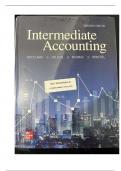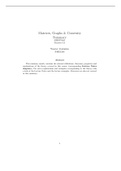Exam (elaborations)
Solution Manual For Intermediate Accounting, 11th Edition by David Spiceland, Mark Nelson, Wayne Thomas, Jennifer ISBN-
- Module
- Institution
Solution Manual For Intermediate Accounting, 11th Edition by David Spiceland, Mark Nelson, Wayne Thomas, Jennifer ISBN-
[Show more]




